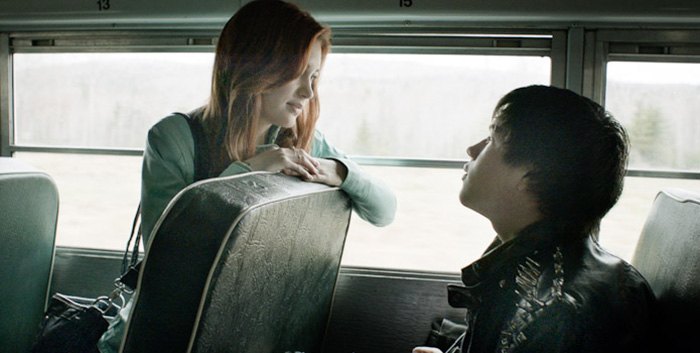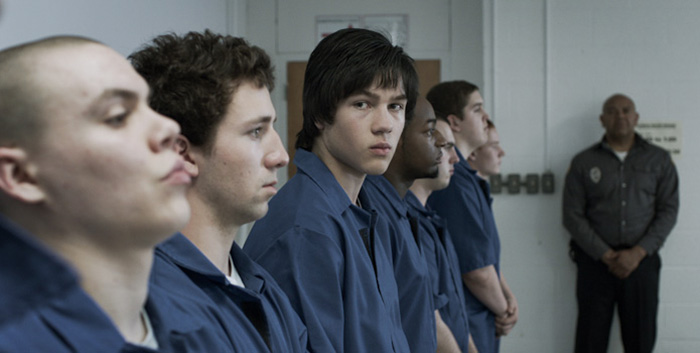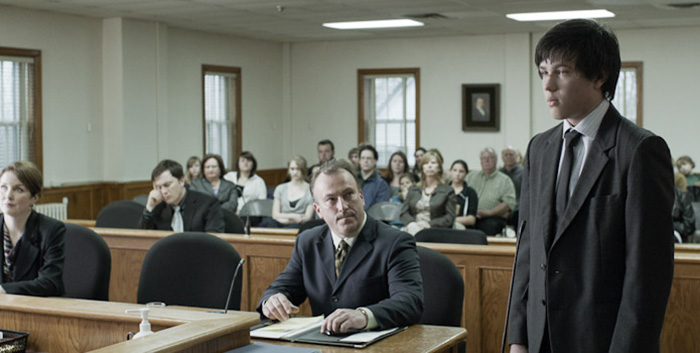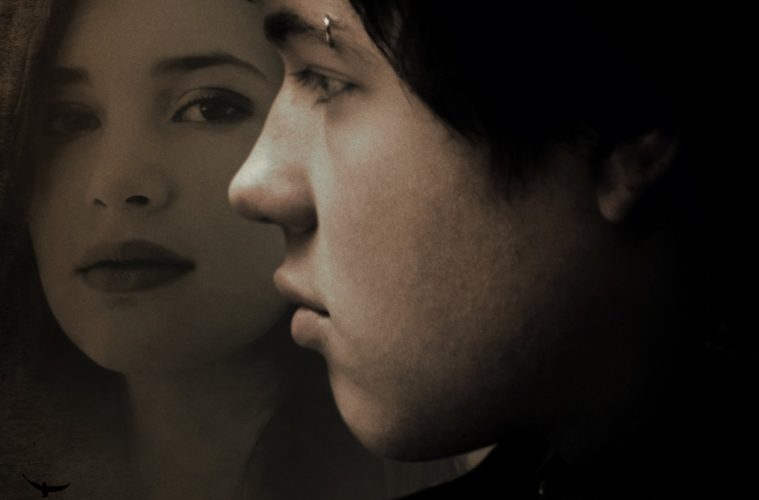Co-winner of the award for Best Canadian First Feature Film at the Toronto International Film Festival, Jason Buxton’s debut Blackbird peers into the sort of guilty until proven innocent mentality our world has gravitated towards after a slew of school shootings post-Columbine. Such an atrocity used to be a nightmare we would never believe could happen in our neighborhoods or with our kids and now it’s become so common that each new media report numbs us to the horror and makes such events almost appear normal. So, when a troubled and alienated teenage goth like Sean Randall (Connor Jessup) decides to take his counselor up on the idea of using writing as a cathartic outlet online for the whole community to see, it’s no wonder the presumed victims’ parents would seek the severest of punishments.

Opening on police lights waking Sean from slumber, his fate is sealed from the start. Questioned at the station amidst incredibly damaging evidence, calm pleas of innocence fall on deaf ears when he tries explaining it was all just a story. But with every incriminating piece shown—like cell phone videos of his father Ricky’s (Michael Buie) gun collection against commentary fueling his tale of revenge—we become privy to the less than scary context surrounding Sean’s pressing play. A pacifist who couldn’t muster the strength to shoot a deer at point blank range, his deadpan delivery of violent words prove mere jokes to rile his father when not filtered through the prism of terrorism. And his targeting of the hockey team? Simply empty threats responding to their undocumented verbal and physical abuse.
It’s a case of “he said, she said” where the victim is easily mislabeled predator due to his stupidity in permanently publishing personal thoughts and emotions when the real threats occurred in private exchanges. We see the sweetness Sean has for a little sister his stepfather refuses to let him see, the educated mind he’s cultivating through a passion for literature, and the love in his heart for hockey player Cory’s (Craig Arnold) pretty girlfriend Deanna (Alexia Fast). But the desire to hope all kids are pure is no more than an idyllic fantasy when concrete, physical declarations say otherwise. Ricky brushes off Sean hearing whispers and receiving stares in the aftermath as paranoia, telling him everyone knows the charges were false. What people say and think, however, are often never the same.

This is evidenced prior to the arrest with young Deanna’s complicity through inaction to help cement Sean’s guilt in the eyes of their Nova Scotia town. She leads the loner along while also trying to remain indifferent to his plight in public for popularity. We see her internal wrestling and confusion but she keeps silent nonetheless. It’s a tragic reality in schools across North America where kids are frightened to stick up for those less fortunate so as not to find themselves on the outside looking in. Society is overrun by technology that assists children in remaining guilt free when mean and therefore more vicious in turn. And as parents increasingly expand their willingness to vilify all but their own flesh and blood, innocents will be swept up in their shoot first ask questions later mentality.
Buxton deals with all aspects of the topic by showing courtroom drama where Sean must decide whether or not to retain integrity and his innocence or admit guilt to be set free; the electronic footprint of texts, emails, chats, and blogs that we take for granted; the vicious cycle of bullying and abuse in our schools; and the realization facts will never change a fearful citizen’s mind once it’s set. We’re brought inside the rough arena of the Waterville Correctional Facility where dangerously violent kids like Trevor (Alex Ozerov) wreak havoc on those without the means to protect themselves. We watch friendships destroyed by a system uninterested in hearing the thoughts of those affected when parental guardianship takes precedence and experience how even the falsely accused’s family isn’t always willing to evolve in the face of adversity.

Blackbird shows us a broken system and the naive children forced to live within it. I can understand why parents would be scared when news of a planned school shooting hits the street because no one knows what’s going on in the heads of troubled kids. Why not err on the side of caution? But just as Deanna’s guardians only see black and white, Sean’s father can see nothing besides grey. There will always be two sides to the coin and Buie’s portrayal of the jilted dad made to care for a son he thought would be his ex-wife’s problem is an honest one—especially when faced with the decision to step up and be proactive in the fight for innocence. Sitting with the lynch mob is easy; standing by your son against them takes courage.
And while we’d think faking guilt to be free of jail is the obvious choice, the inevitable stigma and psychological prison upon return gives pause. Jessup has made a name for himself playing a boy stripped of big emotion courtesy of alien harnessing in Falling Skies and the same demeanor lends itself perfectly here once the shock of his situation cannot be overcome. His Sean is placed in an impossible situation. As those on the periphery like Fast’s Deanna teeter at the edge of speaking out, he must build up his guard to survive the torture to come in mind, body, and soul. And while his choices leading to the film’s abrupt end may not construct the dark finish I anticipated, they are believably in character and a lesson in empathy his detractors should learn.
Blackbird is in limited Canadian release starting Friday, May 10th.

